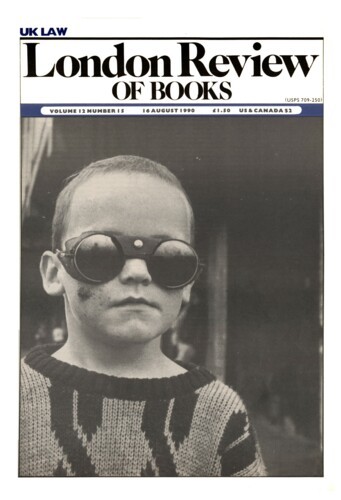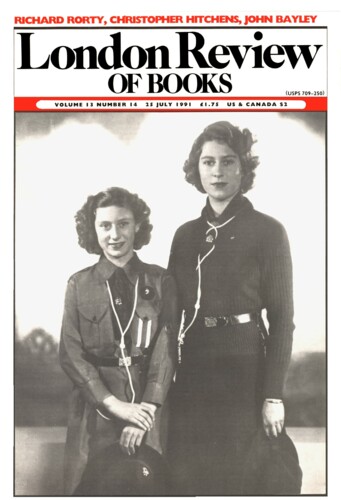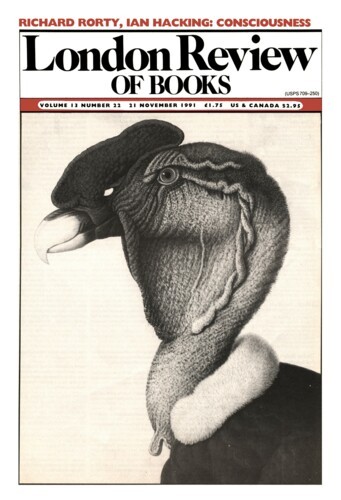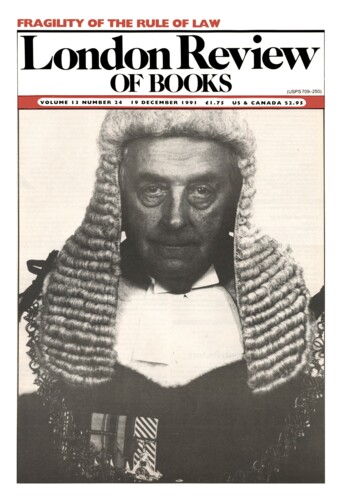Strong Government
Linda Colley, 7 December 1989
Anyone seeking to make sense of British history from the last quarter of the 17th century to the first quarter of the 19th must confront two closely-related questions. How did this small island, so sparsely-populated in comparison with its major rivals, manage to become the prime European and imperial power? And how was it able to remain fundamentally cohesive while it did so? Other polities succumbed to successful invasions from without or to major convulsions within: but Great Britain after 1688 did neither. Why not? Why was there no second wave of civil wars, no further shift in dynasty enforced by foreign troops, and no revolution from below?





